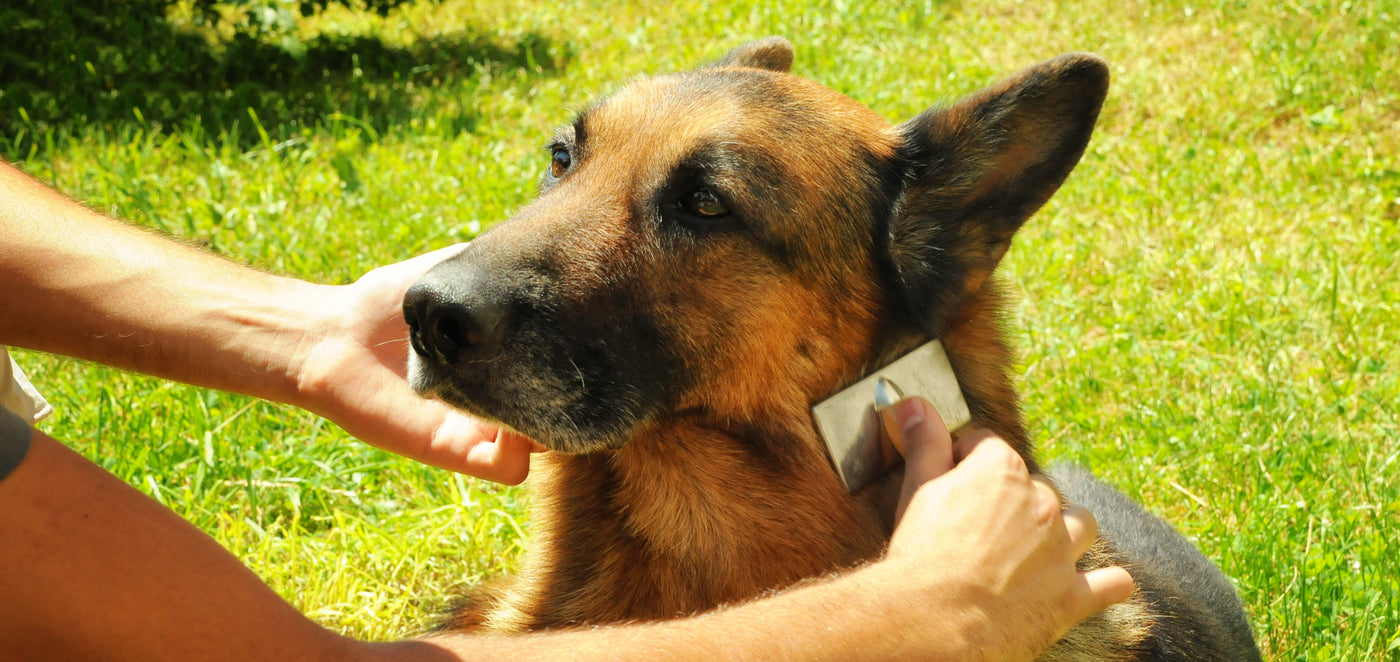
Dog grooming: 4 Top picks from Pooch DVD
The season of heavier malting is fast approaching, but keeping your dog well groomed has never been easier with our handy go-to list of grooming accessories that no dog owner should go without…
This clever de-shedding tool is revolutionary in keeping your dog’s coat fresh. In fact, this tool is commonly used by professional pet grooming salons around the world. Perfect for both long and short hair breeds.
Does your dog require regular skin treatment? If so, this handy vet-recommended product allows for easy, accurate application. Simply remove the leak-proof cap and will with any essential oils, serums or water-based treatments and dispense the treatment easily across your dog’s skin as you brush. No fuss, no mess, just easy, accurate application.
An easy and gentle way to trim your dog’s nails, with the handy PediPaws nail trimmer you can wave goodbye to those traditional nail clippers. The PediPaws trimmer offers a precision filing wheel that gently removes thin layers of the nail to leave your dog’s claws perfectly soft. There’s also a protective cap to ensure you only remove the right amount of nail. Super quick, super easy.
Spending more time outdoors comes with its challenges. Keep pesky fleas and ticks away with this proven shampoo from Defendex, containing all-natural homeopathic ingredients that are proven to help keep your dog’s skin completely healthy.
Looking for something else? Browse our full range of best-selling products here!
- Ben Abimbola
- Tags: Dog Care Dog Grooming Dog Health
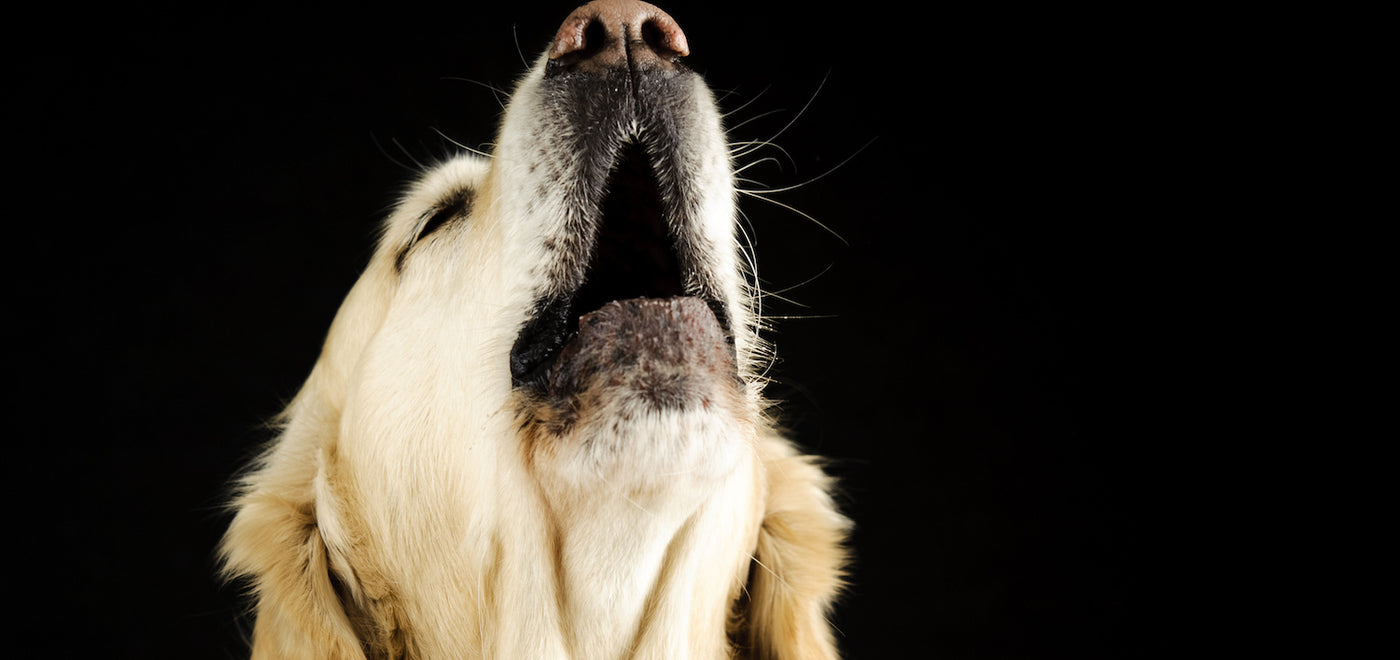
How a behaviourist can help to overcome your dog’s anxiety
Every dog, regardless of size or breed, can become anxious from time to time when put in a particular situation. That being said, anxiety can be a bigger problem for some pooches than others, and if you feel this is something affecting your dog’s health and happiness on a regular basis, seeking a dog behaviourist can be truly transformational.
Anxiety isn’t always something that’s completely obvious, but there are some tell-tale signs you can look out for. Sometimes these signs can be mistaken for bad behaviour, when the real cause is actually anxiety or fear. These include;
- Constant barking or whining, particularly when you leave them alone
- Aggression towards other dogs, particularly whilst out on walks
- Pulling against you whilst on the leash, sometimes triggered by something they’ve seen i.e. a bike or a child
- Tucking their tail between their legs or hiding behind an object
- Acting strange when around new people i.e. growling
- Uncontrollable shaking
If your dog experiences any of the above or something similar, they could be suffering from anxiety. The right route of treatment is really based on the individual dog and the severity of their anxiety. However, there are many benefits to visiting a professional dog behaviourist. Firstly they’ll be able to give you a professional analysis - They’ll be able to identify your dog’s trigger points and recommend things you can do to help. They’ll also put a clear training plan together and will work with your dog to slowly ease them towards a calmer, less anxious pooch.
Aside from seeking professional advice, some supplements have also proven to be effective in supporting a dog’s stress levels – including Vetionx Chillout Chews. Shop our full range of supplements here.
- Ben Abimbola
- Tags: Dog Care Dog Health Dogs
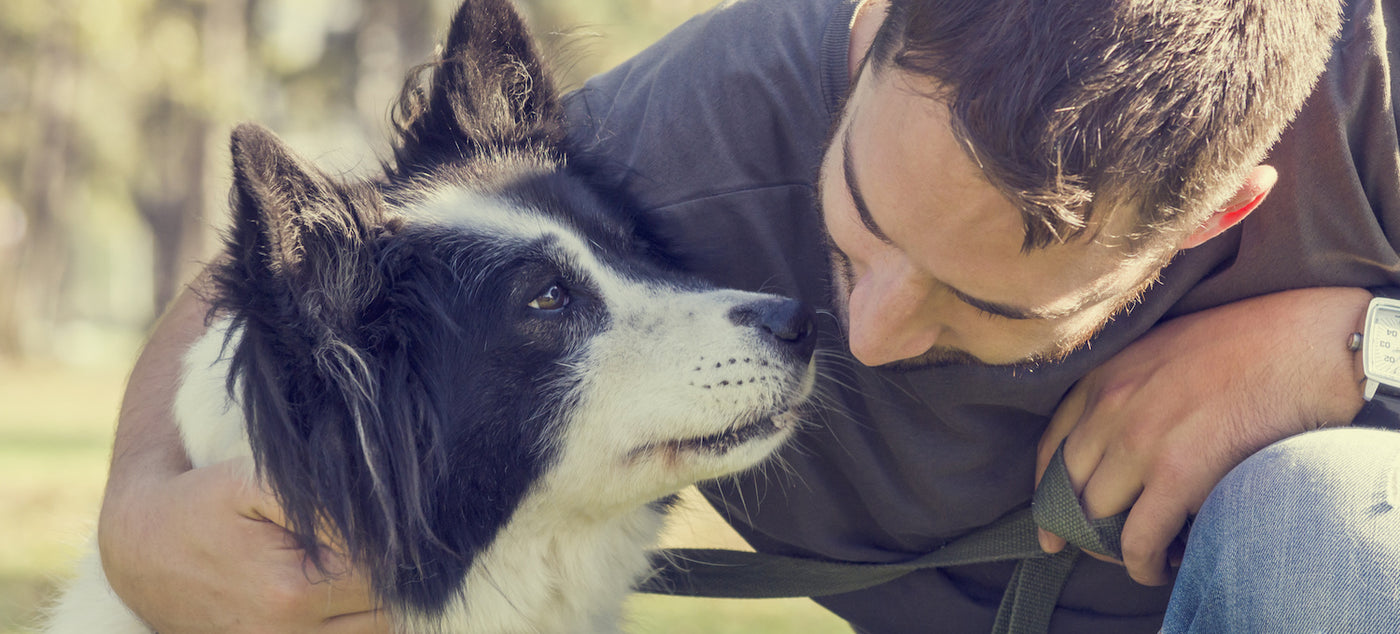
Choosing a dog breed that's right for you
As loving and rewarding as it is to be the owner of a dog, the decision to welcome one into your life, family and home should never be taken too lightly. That’s because dogs require a standard level of care – from regular exercise right the way through to maintaining their general health and happiness.
After considering whether now’s the right time to become a responsible dog owner, your next question will likely be, ‘what breed is right for me?’. Every dog breed has its own unique set of characteristics, from temperament through to health habits. That being said, every dog is unique and should be assessed based on their own individual qualities. To make the process a little easier, we’ve listed a few things that every prospective dog owner should consider before choosing a dog.
Things to consider:
- Are they good with small children? Some breeds are said to be more accepting of smaller children than others. That being said, with the right level of training, we’re strong believers that almost every dog can be taught to cohabit with smaller children. If you have small children in your home and this is something that concerns you, speak to a professional dog trainer for advice.
- How much exercise do they need? The physical demands of a working dog as opposed to a small terrier will differ greatly. Weigh up whether you’ll have the time needed to satisfy your dog’s activity levels on a daily basis, for the duration of their lifetime.
- Is a certain breed known to have health issues? Some breeds are more prone to certain issues than others, but that’s not to say that every dog falls into the same category. It’s often wise however, to research what your chosen breed can sometimes be affected by, including signs to look out for and ways of dealing with it should the problem arise when you become that dog’s owner. For example, French Bulldogs are sometimes known to have breathing issues while Springer Spaniels are prone to suffer from things like Elbow Dysplasia.
- Do they tend to be aggressive? Again, we believe this is something that’s not necessarily singled out by breed but also the way a dog has been welcomed to the world, the care and love they’ve received and the training they’ve been given. Some breeds are classed as being more ‘aggressive’ than others, but it does really come down to an individual dog and their own unique set of characteristics and again, their learning capabilities.
- Does the dog have protective traits? If you’re considering buying a dog for the added purpose of protection, breed is an important factor. That’s because some breeds possess more protective traits than others, and some breeds are able to undergo more intensive training than others due to their sophisticated learning capabilities. Protection dog training isn’t something that should be taken lightly but you can always speak to a professional dog trainer for advice.
Already chosen a breed and waiting to welcome your new dog into your home? Shop our wide range of puppy and dog foods, treats, accessories and health supplements here.
- Ben Abimbola
- Tags: Dog Care Dog Food Dog Health Dogs
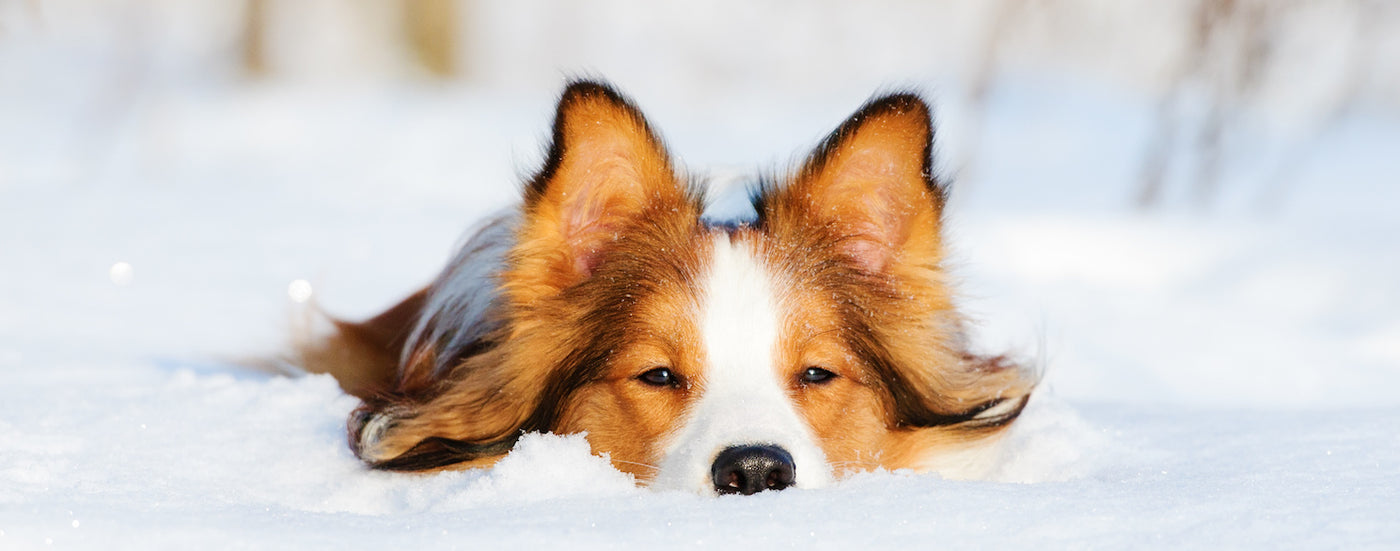
4 tips for caring for your dog’s health this winter
Just like our humans, some dogs love the cold, winter months - but not all pooches are fans of the harsh temperatures and darker days. In fact, there is a general misconception that dog’s don’t feel the cold due to their lovely warm coats, but that’s not always the case. You might be surprised to learn that just like us, dog’s can and do feel the cold which can of course affect their health and wellbeing during the winter season.
Rest assured, there are plenty of things you as an owner can do to help keep your furry friend at their best during the next few months, and we’ve listed a few below;
- Care for their paws. The ice cold ground takes its toll on a dog’s paws, causing them to become dry, an even sore if ice builds up around their pads. Try to keep the fur around their feet well trimmed to lessen the likeliness of ice building up and causing their feet to become sore. We also recommend regular wiping/cleaning of your dog’s feel following walks, as this time of year roads and streets are covered in salt and other less pet friendly ice-melters that can cause their feet serious irritation.
- Don’t be fooled by their thick coats. Some breeds, like Huskies, are well equipped for the winter months with their lovely, thick coats. But for dog’s with thinner coats, they’ll begin to feel the cold much quicker - meaning shorter walks may be a more sensible idea if it’s particularly cold outside. Also, some pooches love to jump in rivers when out on walks - try to avoid this during the colder season as this can make them feel even colder and could even lead to hypothermia.
- Ensure they’ve got a warm, cosy bed. Getting your dog’s bedding just right is almost just as important as a babies. They need to feel warm and cosy, but not to the point where they’ll quickly overheat. Avoid putting your dog’s bed close to any heaters, but instead ensure they’re not in the pathway of a draft, or on cold, tiled floors. Bulk them up with cosy blankets and for those that suffer with joint pain, opt for a heated pet bed - which of course we stock!
- Keep fuelling their immunity with vitamins. Whatever your dog’s age, they need to be getting their full dose of vitamins and minerals, all year round. This is particularly important during the winter months, when the cold, wet weather takes its toll on their immunity. We stock a wide range of leading brands that specialise in dog vitamins and minerals - browse here.
- Ben Abimbola
- Tags: Dog Health Winter
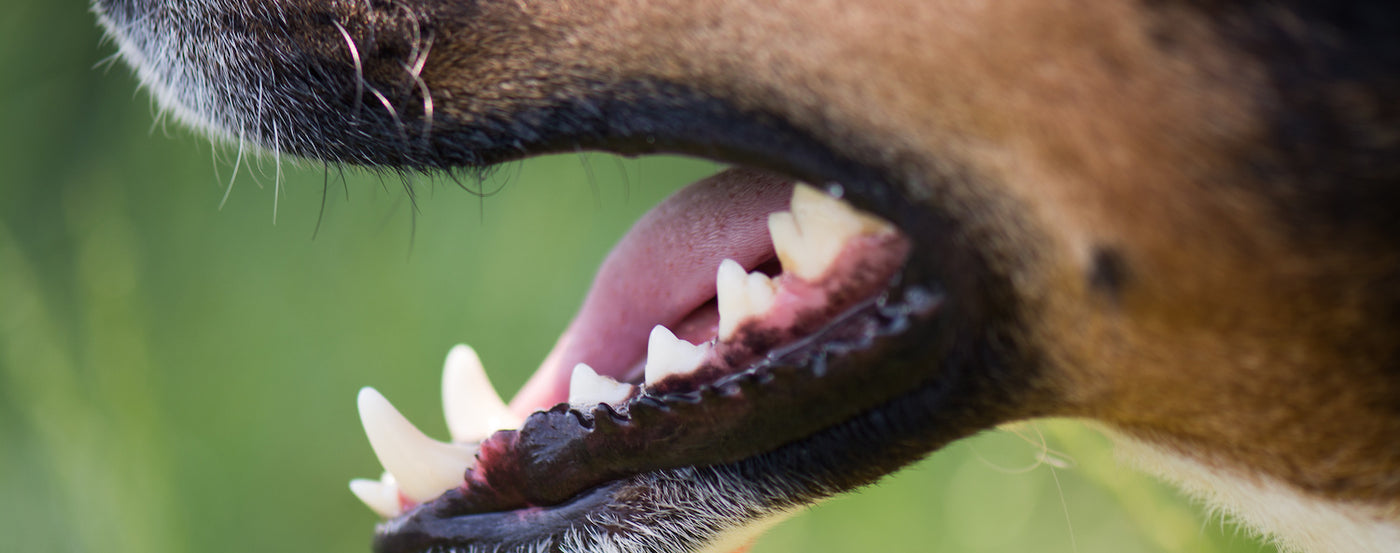
Does your dog suffer from bad breath? Here's what it could be...
Believe it or not, a dog’s breath shouldn’t be smelly. In fact, any unpleasant odours that persist, could be a sign of a health problem.
If your dog has suffered from smelly breath, over a long period of time, this could be a sign of a build up of bacteria in his or her mouth. Sometimes this bacteria, caused by plaque and tartar, can accumulate and cause painful gums and loose teeth - also known as gum disease.
If you suspect this could be what’s affecting your poor pooch, take a look inside their mouth. A healthy dog’s mouth will have pink, straight gums with clean, whole teeth.
What else could it be?
Do your dog’s teeth and gums look healthy? Gum disease isn’t the only possible culprit here. Smelly breath can also be a sign of other bodily issues, including your dogs lungs or even their stomach. Although this may sound scary - it could be something as simple as a dietary issue - so don’t panic.
Don't self-diagnose
Whatever the issue, it’s always best to seek professional advice from your dog’s vet. They’ll be able to distinguish the cause of your dog’s bad breath and rule out any issues that may be worrying you.
Can brushing help?
Just like us humans, practicing good oral health is just as important for dogs. It’s often easier to get into this habit from a young age - making the whole process a little easier for the both of you.
Foods and snacks
It’s also worth considering whether your dog’s diet is supporting of great oral health. We stock a whole range of foods and treats that are designed to prevent the unwanted build up of bacteria. Shop our best-sellers here: https://poochdvd.com/collections/featured-products
- Ben Abimbola
- Tags: Dental Care Dog Diet Dog Food Dog Health Dog Health Advice Dog Nutrition

Help your dog gain weight, the healthy way
Whether a dog has been neglected and malnourished, is recovering from an illness, or is simply a highly active, working dog - their weight can become an issue that needs a quick and healthy remedy.
Miracle Vet is a high-calorie liquid that’s all-natural. This healthy solution can help any dog, of any breed, put on the weight they need to stay healthy.
By simply adding the liquid to any dog food, be it wet, dry or raw via a syringe, or even to their water, they’ll be sure to get the extra calories they need to stay healthy and strong. Just to give you an idea - each 16oz. bottle contains 2,400 calories. 2,080 of those calories are from fat.
Suitable for dogs ages 4 weeks and older, Miracle Vet is completely natural and thereby has no side-effects. You’ll also be pleased to learn it contains no trans fats, or artificial colours, flavours or ingredients. What does it include? Ingredients include fish oil and whey protein.
Learn more about everything this amazing product has to offer here.
- Ben Abimbola
- Tags: Dog Health Dog Weight Weight Gainer